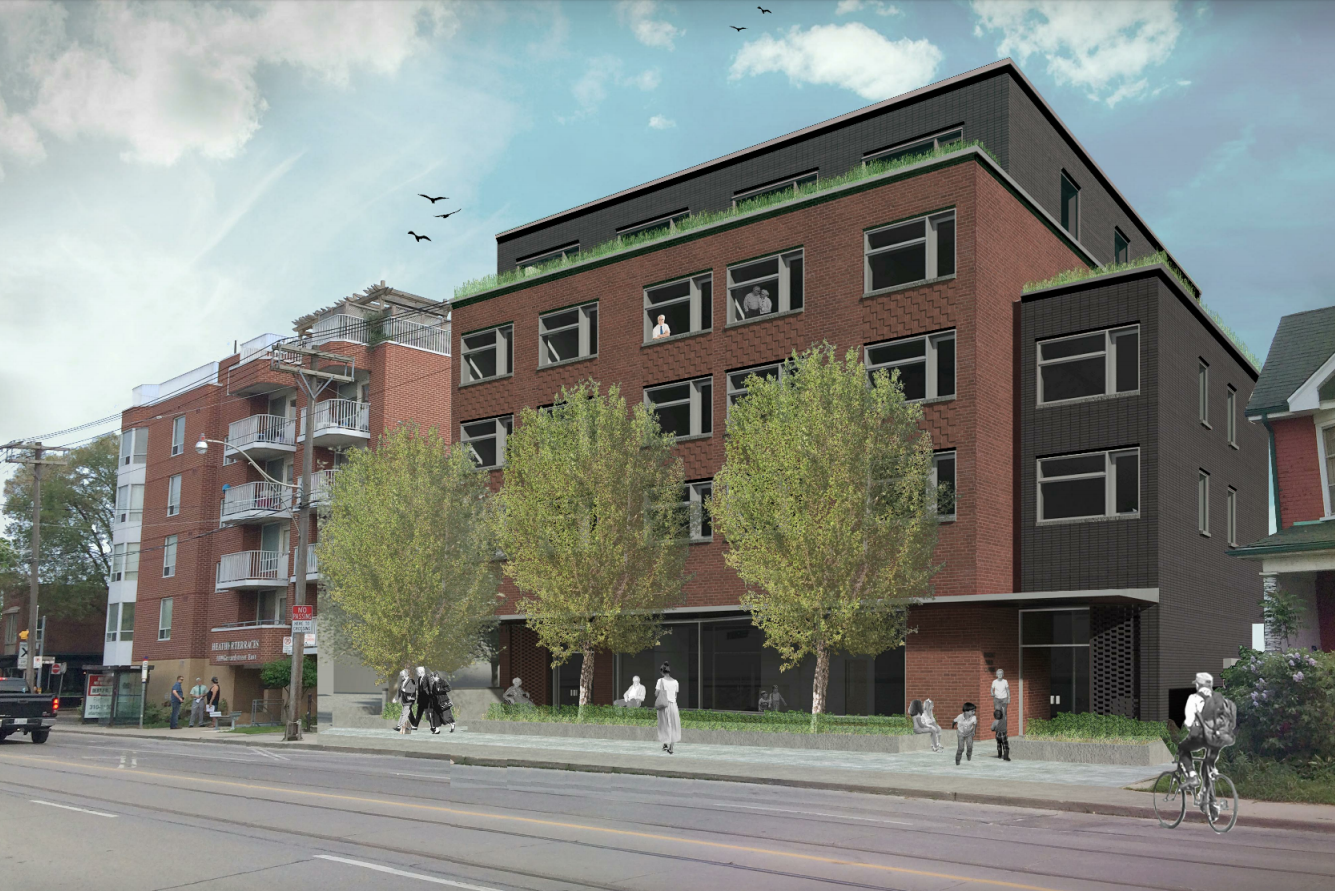WoodGreen Community Services in Toronto has an ambitious plan to build 2,000 affordable housing units over 10 years. To tackle the challenge, the non-profit organization, founded in 1937, turned to the Community Housing Transformation Centre to help it acquire the resources it needs for the campaign.
While taking stock of their programs a few years ago in light of their mission (“A Toronto where everyone has the opportunity to thrive”), WoodGreen Community Services realized that housing was one of the areas where it could have the greatest impact. Michelle German, WoodGreen’s vice president of policy and strategy, notes that “there’s a real need for both affordable housing in terms of subsidized community housing, as well as supportive housing.”
In 2021, around 80,000 people in Toronto are on the centralized waiting list for subsidized housing, according to the city, and the wait times to access that housing are measured in years. It takes seven years or more to get your hands on a studio apartment, 12 for a one-bedroom apartment and 10 years or more for a larger unit.
Woodgreen—which was founded in 1937 and offers a range of programs such as employability services, services for seniors or youth, and childcare—already offers some 1,000 units, many in supportive-housing settings. But it has set itself an ambitious new target: to build 2,000 homes in 10 years.
“We first wanted to start with a big, audacious goal that would create urgency, German explains. “The city of Toronto has set a target of 40,000 new units of affordable housing in their 10-year housing action plan. So, we wanted to be part of that and say, ‘you know what, we could do 2,000.’”
But before WoodGreen was able to step up to the challenge, it needed more internal resources. That’s what the $125,000 grant from the Community Housing Transformation Centre’s sectoral transformation fund for local projects enabled it to develop. “We realized there were a bunch of things we needed to do to increase capacity,” says German.
First, the board of directors had to be educated, she says. “Our board of directors oversees a community-service agency, not necessarily a housing organization. So, there’s a lot of education that needs to happen there.”
As well, WoodGreen had the skills but not the means to do the advance work necessary for the kind of projects it wanted to take on. “One of the things the grant is helping us do is hire a full-time person who can really put this together.”
The employee will work to flesh out the details of business cases on the table and inform the board about the specifics of housing projects and partnerships to be created.
The Centre’s grant also allows WoodGreen to create models that will facilitate the development of new projects. “For example, [sometimes we work] with a developer [who] do everything, and we take on the units at the end. So, we’re starting to see some trends in the models that we’re doing. And so one of the things is: how do we systematize this in a way so that we’re not reinventing the wheel? We’re kind of analyzing what’s working and we’re creating these models that are replicable, [that include] our process from beginning to end and, also, what are the materials we need? All of the legal contracts, all sorts of things.”
Partnerships needed
Independently of Centre funding, WoodGreen has also established a Real Estate Advisory Committee to help find answers to questions such as, “who do we need to build partnerships? How do we rank different projects that we want to apply for?”
WoodGreen established a list of people to talk to or meet with, German explains. People who could become partners—real-estate developers, pension-fund and investment-trust managers, people in government, the city, school districts, etc.
“Really, just making a lot of friends and starting sharing exactly what we want to accomplish—and finding people who have common ground with us. So that’s been our approach.”
Partnerships are key to WoodGreen’s growth, German believes. Without them, “we’d probably only build 100 units in the next 10 years. Because it’s just so much work that you basically have to become a developer. So we think the lion’s share of our new units are going to come from finding people who are already building them and then partnering with them by taking on [management of] those units. So […] letting them do what they do best. And then we swoop in and help manage the units and connect them to our clients.”
For German, there is no doubt that the creation of new affordable housing is a difficult challenge. “It’s becoming really obvious to us that it takes every tool and financing model and opportunity to leverage in order to get it done. There’s lots of opportunity, you know, there’s government lands that are becoming available [and] policies like inclusionary zoning. So, I think the time is really good right now.”
Our illustration shows WoodGreen’s new seniors building, developed with New Commons Development at 1117 Gerrard St. E., in Toronto.



